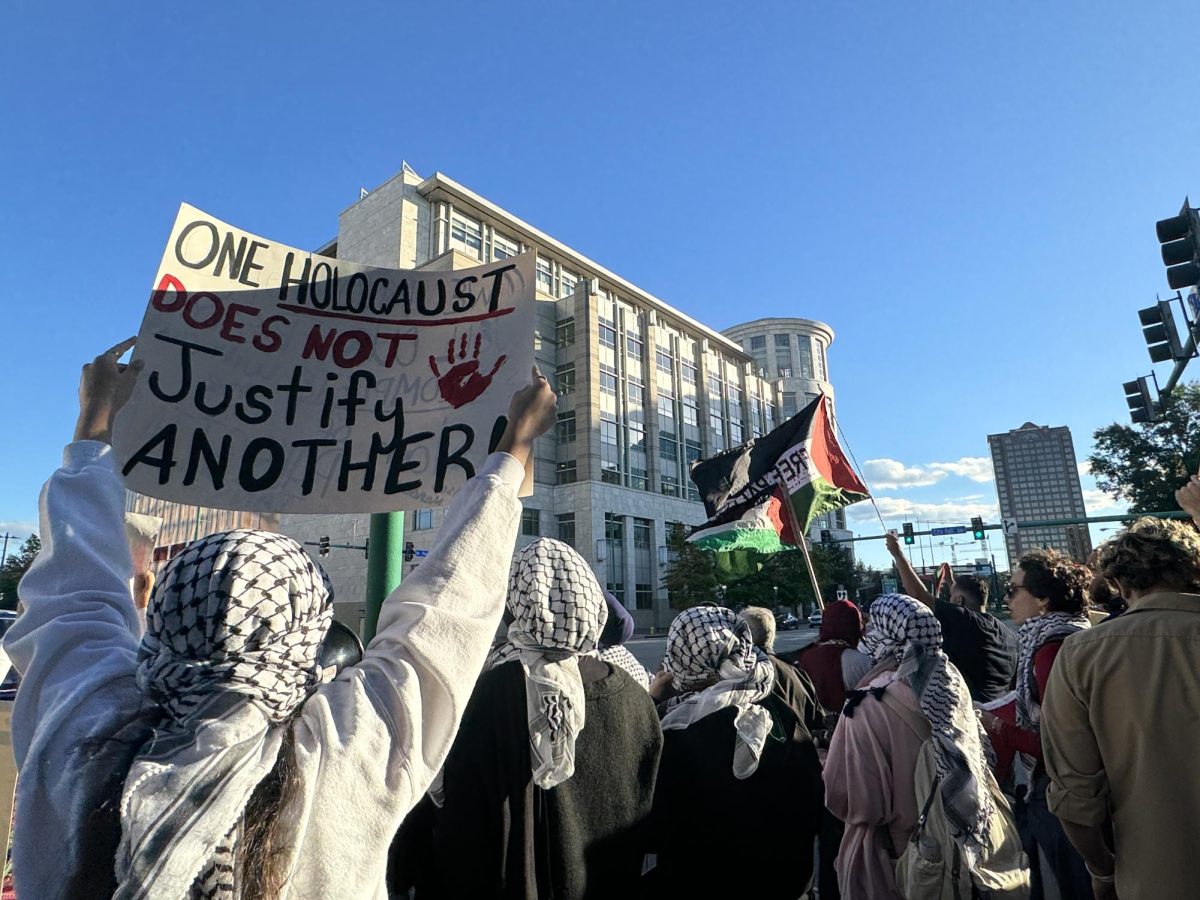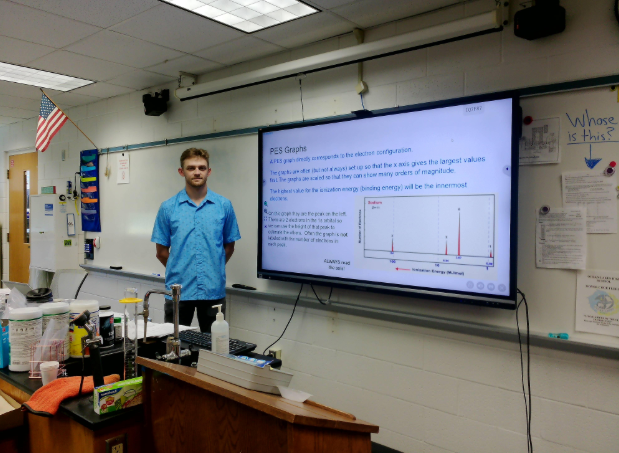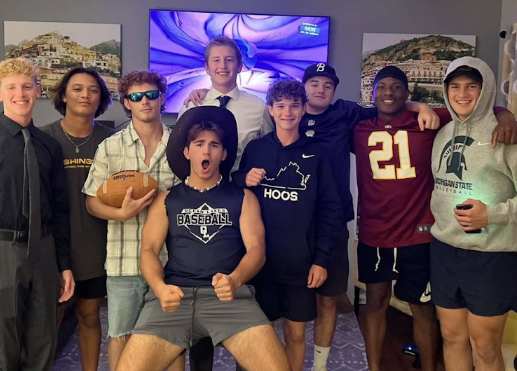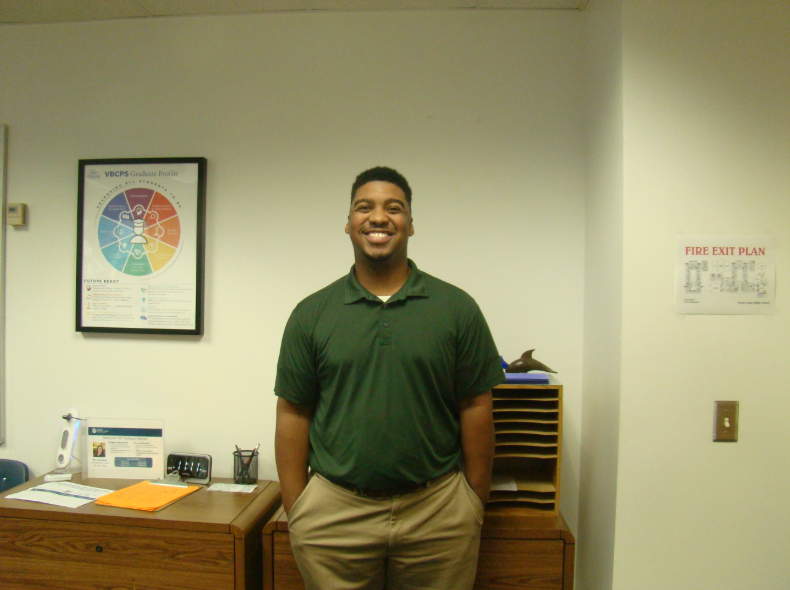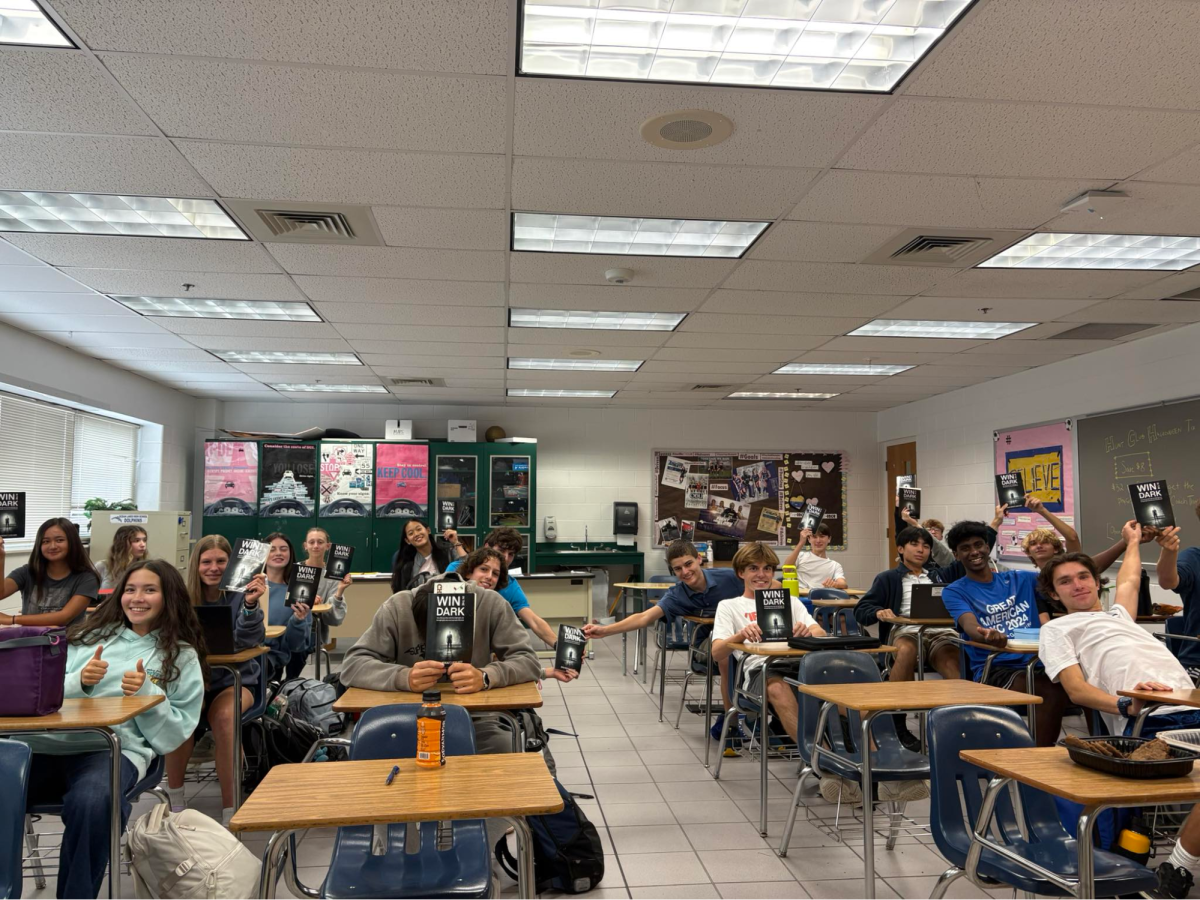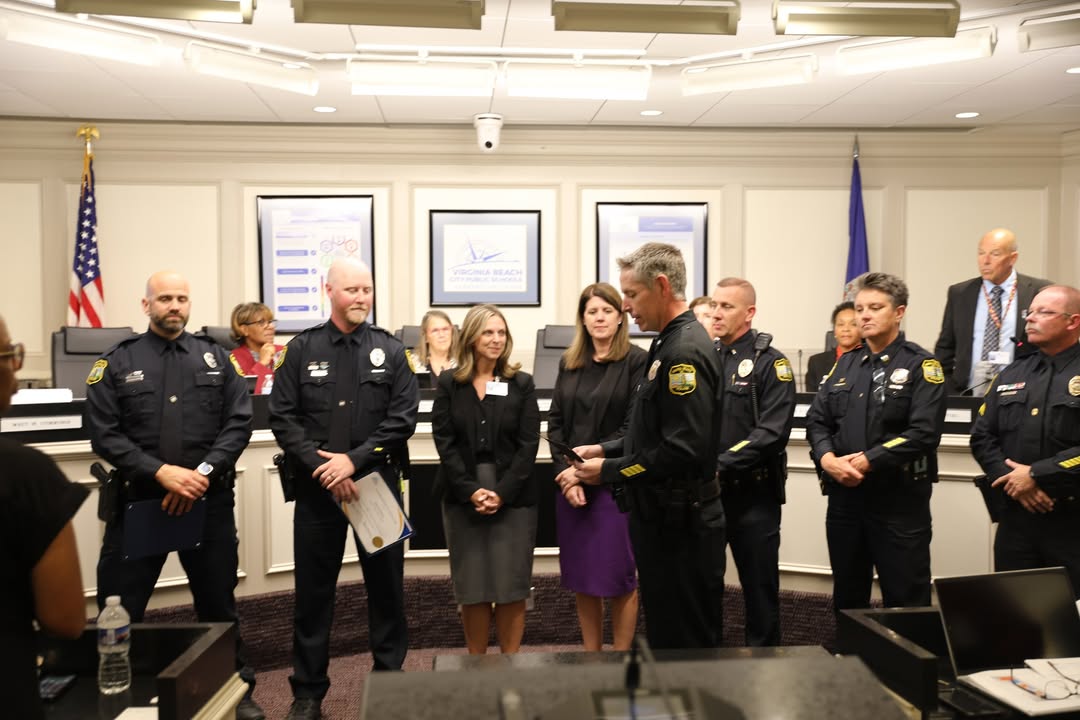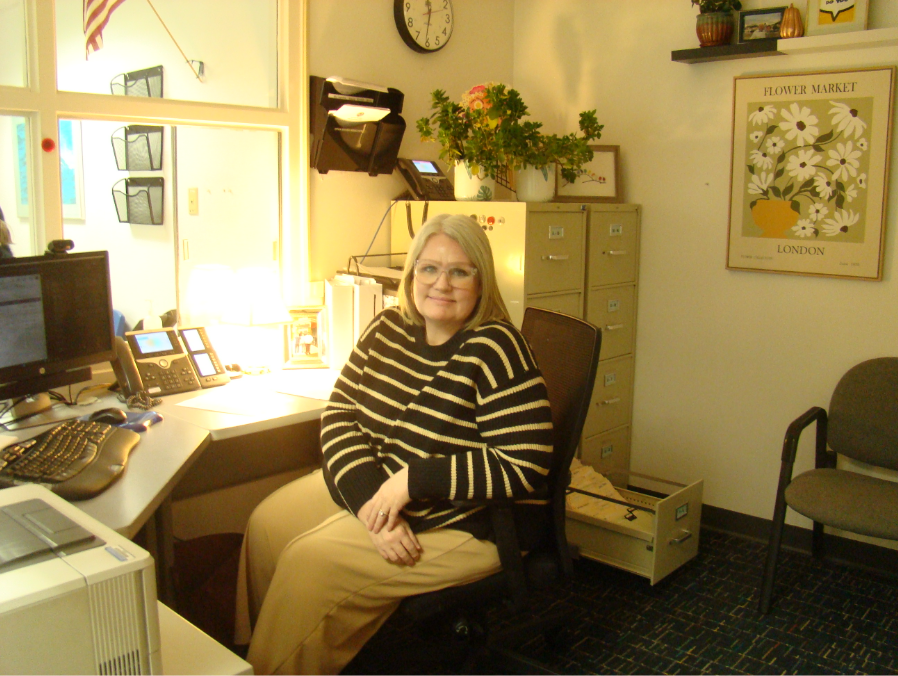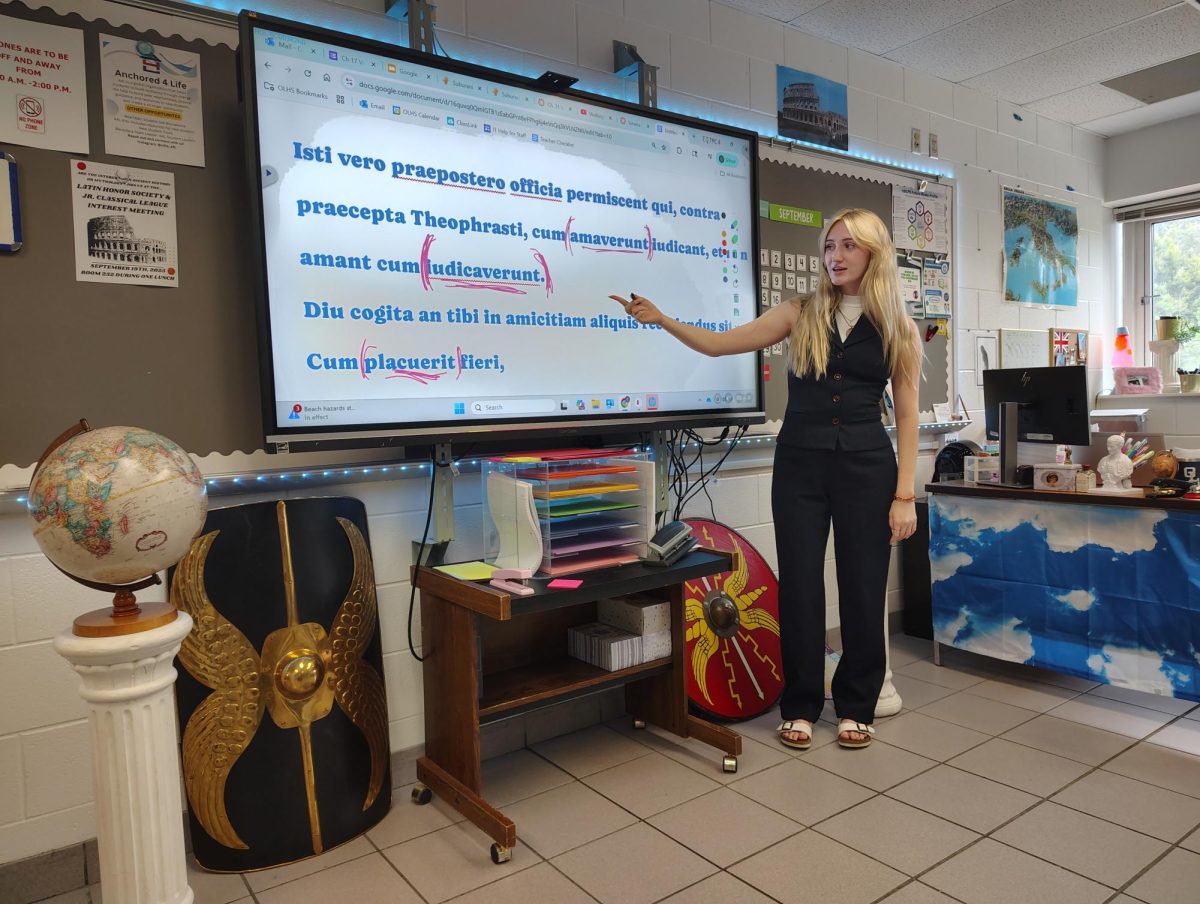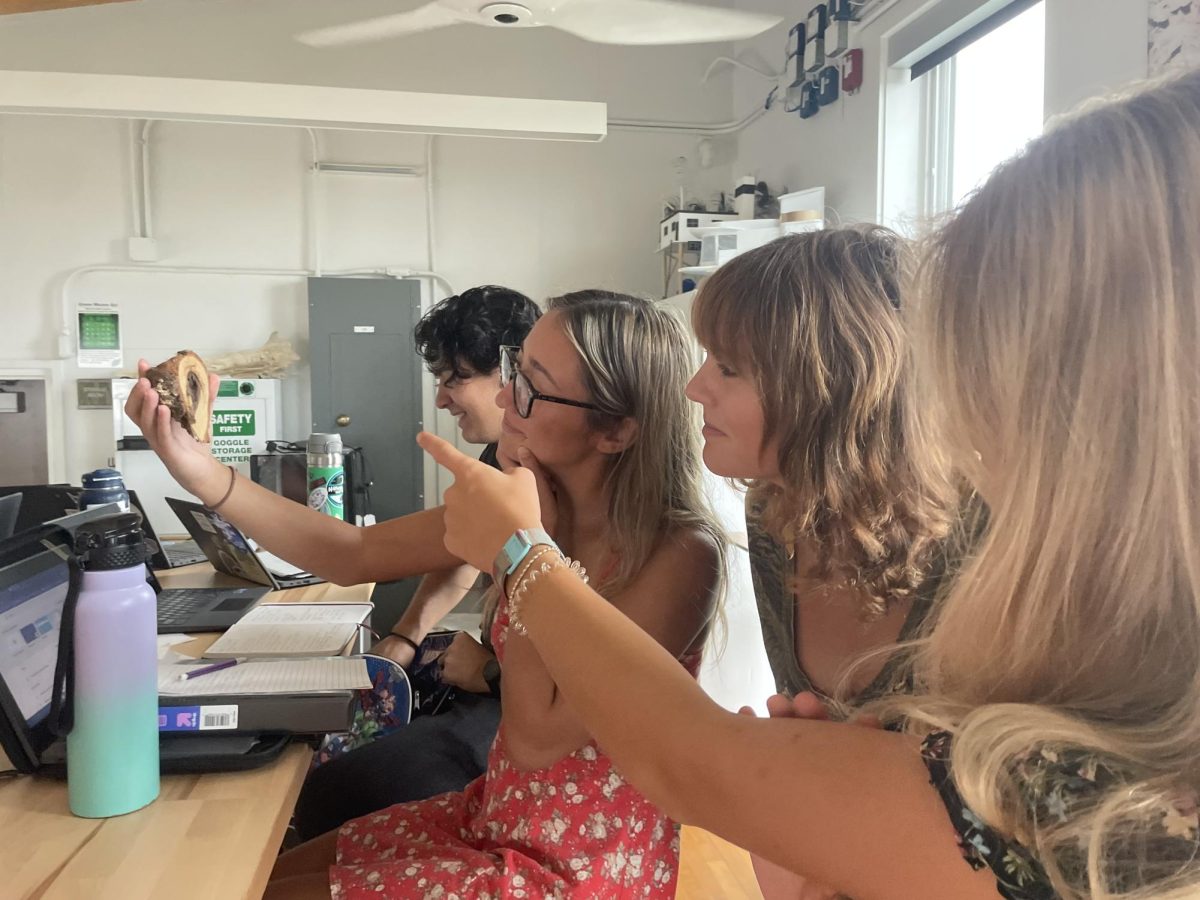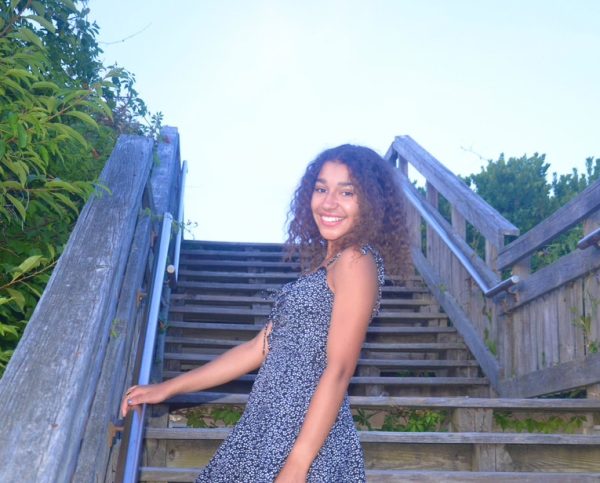“From the river to the sea, Palestine will be free,” echoes from the streets as cars honk and raise flags in support.
The Hampton Roads Organization leads a weekly peaceful protest every Saturday in Norfolk from 2 to 4 p.m., at the corner of St. Pauls Blvd and City Hall Ave.
“Protesting to me is a form of resistance, while also educating the world that atrocities are taking place against humankind. We cannot just stand by and watch,” said Faisal Al-Khatib, a Palestinian-American ODU student who has never had the opportunity to visit his family due to the Palestinian occupation.
Around two million Gazans are confined to one of the most densely populated spaces in the world, suffering inadequate access to clean water, food, electricity and sewage systems, according to The United Nations Conference on Trade and Development (UNCTAD).
“The people of Gaza are living in constant fear, with their lives hanging in the balance. Everyday action isn’t taken, the situation grows immensely worse,” said junior Saif Hasan, who attended two D.C. protests in Freedom Plaza and claimed that he was extremely moved by both experiences.
The most recent Freedom Plaza protest took place on Jan. 13, 2024, and had over 400,000 protesters, according to the American Muslims for Palestine Organization.
“Protests are an opportunity for the government to understand the will of the people, especially during times when there’s a stark contrast between public opinion and governmental actions,” said senior Cole Stotlar, who was prompted to speak up about the challenges faced by Palestinians after his four-month study abroad program in Jordan.
The ongoing Israeli military operation has displaced 85% of Gaza’s population, halting economic activities and further worsening poverty and unemployment, according to unctad.org.
“The humanitarian crisis has reached a point where Gaza is often described as a living hell on earth. Addressing this issue urgently and comprehensively is not just a regional concern; it’s a matter of global significance that demands immediate attention and action,” said Stotlar.
According to Stotlar, his unique perspective includes not only the Palestinian narrative but also insights from Israeli individuals he had the privilege of meeting during his stay in Jordan.
“By actively engaging with both sides, I aim to contribute to a more comprehensive understanding of the issue,” said Stotlar. “It is crucial to emphasize that I don’t have any personal affiliations or ties to the region, be it Arab, Israeli, Muslim, or Jewish. This neutrality allows me to provide a valuable and objective perspective, adding depth to the discourse surrounding the ongoing challenges in the region.”
Coincidentally, on Oct. 7, 2023, Stotlar’s school decided to take a field trip to the Dead Sea, which is near the border of Jordan and the West Bank of Palestine.
“This immersive experience granted me a profound understanding of the situation, shedding light on the realities on the ground,” said Stotlar.
The first story he would like to share is of his friend Ward, who spoke in front of the boarding school about her family and the Key of Return.
“The Key of Return is the key that most Palestinian families hold to their original house that was taken from them by Israeli settlers after the 1948 Nakba. They hold this key with them as a beacon of hope that someday they will be able to return to the house that had been in their family for centuries, but was stolen from them,” said Stotlar.
The next story he would like to share is of his friend Kinda.
“She told me that because her uncle had posted something related to Palestine on social media, the IOF broke into her house, arrested her uncle, took him outside, blindfolded him, held him at gunpoint and shot him on the spot along with one other person, said Stotlar. “She was acting perfectly normal during this time, and I asked why. She said that if you live in the West Bank, you expect to be shot at least once in your life by the IOF.”
The last story Stotlar wishes to share is of his friend Yara, who he noticed was crying during lunch, so he approached her to ask what was wrong.
“She told me that her entire family in Gaza had been bombed by the Israeli Occupation Forces (IOF), and her mom was the only one who was able to make it out alive. Her mom later fled to the West Bank where she was able to find safety,” said Stotlar.
Like many, Yara had to change her last name so her family could stay in their homeland without the fear of being imprisoned or killed, according to Stotlar.
Al-Khatib resonates with Yara’s story as he also lost family members during the airstrikes. As a result of his experiences, he urges people to review the history of the region, ignore Western propaganda and listen to first-hand sources on the ground.
“As students, we are not just recipients of the world’s current affairs; we are the future leaders and influencers who will shape the direction our nation takes. By understanding the complexities and nuances of the situation in Gaza, we equip ourselves to be informed advocates and catalysts for positive change. The responsibility to drive change ultimately rests with us, and being well-informed is the first step towards building a future where empathy, awareness, and informed decision-making guide our actions,” said Stotlar.

